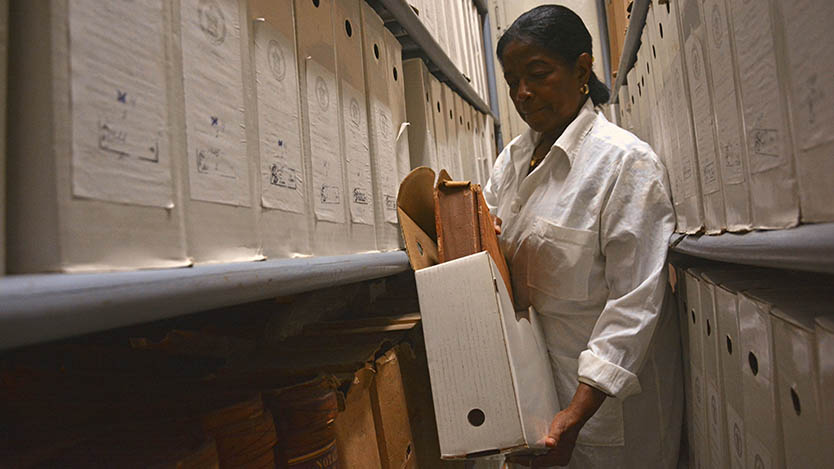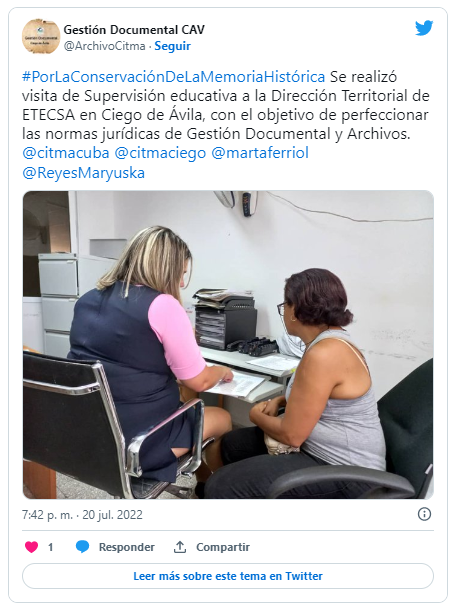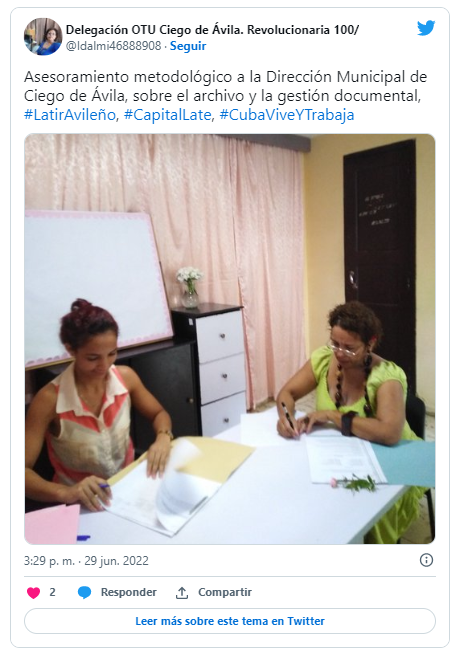
Not to justify the breaches of the National Historical Memory Program and the legal regulations issued in 2020 for the improvement of the National System of Documentary Management and Archives, the governor of Ciego de Ávila, Tomás Alexis Martín Venegas, recently called during the Government Council corresponding to the month of October.
The emphasis with which he addressed the municipal mayors was not disproportionate, since half of the territorial governments do not have a manager for their archives; four of the 10 Municipal Historical Memory Commissions do not work; and none of the Central Archives premises comply with Resolution 201/2020 Guidelines for the conservation of documentary sources.
Furthermore, none of the current mayors has received training in the legal system of this Program, periodically checked by the highest authorities of the country. Hence, the governor's call focused on the responsibilities assigned to the municipal mayors, taking into account that they are the ones who must organize and control compliance with the indicators.
The discussion around these issues was sparked by a report from the Territorial Delegation of the Ministry of Science, Technology and the Environment, which lists not only what has not been done, but also the advances in the protection of documentary heritage and archives.
To date, 320 people have been trained, of which 182 are directors, 58 reserves and 80 specialists and technicians and/or managers, corresponding to 29 of the 32 organizations identified in the province.

The creation of a group of experts for the Conservation of Historical Memory made it possible to diagnose the conservation mechanisms in five heritage entities, 7 political and mass organizations, 29 non-governmental organizations, 25 Cemetery Archives and 48 religious and fraternal entities. In addition to the diagnosis, training began for these institutions on the legal standards of Documentary Management and Archives.

A year ago, the researchers Martha Ferriol Marchena, director of Documentary Management and Archives (DGDyA) of Citma, and Maryuska Hernández Reyes, Head of the Department for attention to Historical Archives of the DGDyA, took stock of what had been done in the last three years.
“Raising awareness and archival culture in all institutions, agencies, entities and society in general ─they said─, is a great battle that must be faced every day and that requires knowledge, sensitivity and an ethical attitude to recognize the documentary heritage of our nation as a support for its historical continuity”.
In his opinion, documentary heritage is one of the pillars of the construction and reaffirmation of cultural identity and is part of the nation's treasures.




